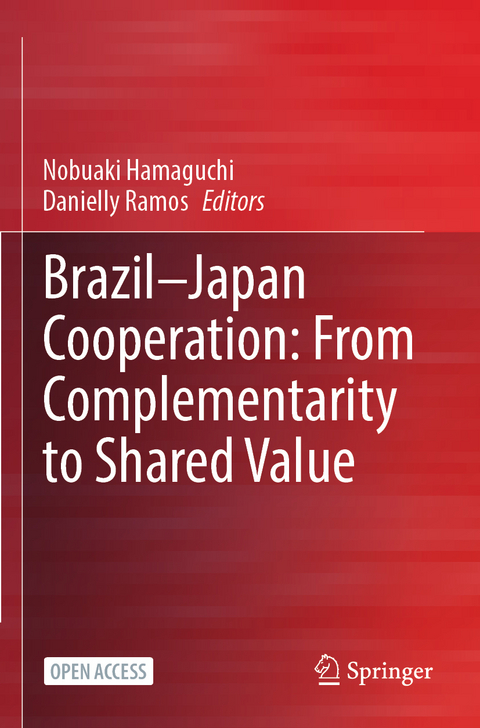
Brazil—Japan Cooperation: From Complementarity to Shared Value
Springer Verlag, Singapore
978-981-19-4031-6 (ISBN)
Analyzed here is the development of this renewed bilateral relationship in multiple directions: productivity, global environment and health, migration, and triangular cooperation in third countries’ development. Facing the prospect of a declining population, Japan may become more open to international migration, but the experience with Japanese-descent Brazilian workers since the amendment of the migration control law in 1990 presents many lessons and challenges for the symbiosis of multicultural groups. Brazil, for its part, needs to address social inequality. To this end, it is fundamental to improve the quality of work.
This book argues that Brazil and Japan can benefit from cooperation in managing those country-specific issues. It also discusses ways that Brazil and Japan can profit from coordinating action on global problems such as greenhouse gas reduction, mitigation of tropical diseases, healthy community building, and high-quality infrastructure for poverty reduction.
Nobuaki Hamaguchi is a professor at the Research Institute for Economics and Business Administration (RIEB) at Kobe University, Japan. He holds a Ph.D. degree in regional science from the University of Pennsylvania, USA. His research interests are in regional/industrial policies and economic integration. From 2011 to date, he has been a program director and a faculty fellow of the Research Institute of Economy, Trade, and Industry (RIETI). He is the co-author of Spatial Economics for Building Back Better: The Japanese Experience (Springer 2021) and Cutting the Distance: Benefits and Tensions from the Recent Active Engagement of China, Japan, and Korea in Latin America (Springer 2018). Danielly Ramos, Ph.D., is an associate professor at the Institute of International Relations and director of the Center for Global Studies at the University of Brasília (UnB). She coordinates the Asia–Latin America and Caribbean research group (ASIALAC). Her research focuses on Brazil’s foreign policy and Asia–Latin America relations. Her publications probe China’s foreign direct investment in Latin America and the Caribbean, inter alia, especially connections between Chinese multinational corporations’ investments and Brazil's domestic political economy. She is the co-author of “Rise and Fall of Triumphalism in Brazilian Foreign Policy: The International Strategy of the Workers Party’s Governments” in Status and the Rise of Brazil (Palgrave Macmillan) and “One Step Closer: The Politics and the Economics of China's Strategy in Brazil and the Case of the Electric Power Sector” in China–Latin America Relations in the 21st Century (Springer 2020).
Brazil - Japan Relationship: A Partnership? (Henrique Altemani de Oliveira and Antonio Carlos Lessa).- Global Environmental Governance and ODA from Japan to Brazil (Shuichiro Masukata, Cristina Y. A. Inoue, and Nanahira de Rabelo e Sant’Anna).- Global Health (Rodrigo Pires de Campos and Saori Kawai).- Trilateral Cooperation for Infrastructure (Akiko Koyasu and Danielly Ramos).- Brazilian Workers in Japan and Public Policies for Promoting their Social Integration with a Focus on Basic Education to the Children (Mauricio Bugarin and Keiichi Yamazaki).
| Erscheinungsdatum | 05.10.2022 |
|---|---|
| Zusatzinfo | 13 Illustrations, color; 4 Illustrations, black and white; X, 214 p. 17 illus., 13 illus. in color. |
| Verlagsort | Singapore |
| Sprache | englisch |
| Maße | 155 x 235 mm |
| Themenwelt | Sozialwissenschaften ► Politik / Verwaltung ► Europäische / Internationale Politik |
| Sozialwissenschaften ► Politik / Verwaltung ► Vergleichende Politikwissenschaften | |
| Sozialwissenschaften ► Soziologie | |
| Wirtschaft ► Volkswirtschaftslehre ► Makroökonomie | |
| ISBN-10 | 981-19-4031-2 / 9811940312 |
| ISBN-13 | 978-981-19-4031-6 / 9789811940316 |
| Zustand | Neuware |
| Haben Sie eine Frage zum Produkt? |
aus dem Bereich


